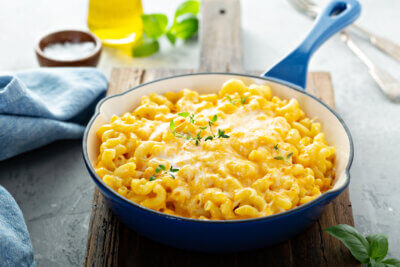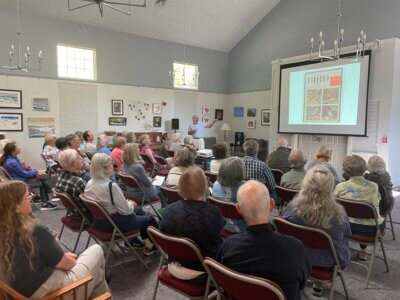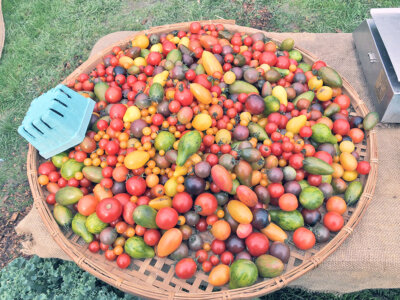May 5 historically notable for more than just Monday Munch
May 5 is quite a day in American history:
- 1857 — A group of noted literary men of the day met at Boston’s Parker house. While enjoying a meal and conversation, the men talked about founding a new magazine. A few months later, the mission statement published in the first issue of The Atlantic was signed by many of the greats of American letters, including Herman Melville, Harriet Beecher Stowe and Nathaniel Hawthorne. You can read that mission statement here: theatlantic.com/history.
Take no notice of what the fast food afficionado and current White House resident says about this distinguished publication.
- 1862 — Mexico’s victory over the Second French Empire at the battle of Puebla is now celebrated, mostly in the U.S., as Cinco de Mayo. U.S. News & World Report explains why this holiday is more popular in here than in Mexico (https://tinyurl.com/5w3ppad).
- 1891 — Carnegie Hall opened in New York City, with Pyotr Ilyich Tchaikovsky as guest conductor of the New York Music Society Orchestra. This year star pianist András Schiff canceled his scheduled concert because of President Trump’s “unbelievable bullying” of the rest of the world (https://tinyurl.com/yzkr7y6n).
- 1904 — Boston Braves pitcher Cy Young pitched the first major league perfect game. Now, a National League pitching award given each year bears his name.
- 1921 — Coco Chanel introduced her new perfume on the fifth day of the fifth month, fittingly naming it Chanel No. 5.
- 1925 — John T. Scopes, a teacher in Dayton, Tennessee, was arrested for teaching Darwin’s theory of evolution. In the famous “Monkey Trial,” Scopes was defended by the ACLU with Clarence Darrow arguing about academic freedom. Trained chimpanzees performed on the courthouse lawn, and press coverage was intense. In 1976, the National Park Service designated the courthouse a National Historic Landmark. Think about the current curriculum mandates coming out of the Oval Office, and bring on the chimps.
- 1926 — Sinclair Lewis declined the Pulitzer Prize for his novel “Arrowsmith,” still upset that his “Mainstreet” had not been awarded this prize.
- 1942 — The U.S. began rationing sugar. In a chapter titled “Sweet Sacrifice,” recipes in “Grandma’s Wartime Kitchen: World War II and the Way We Cooked” show how to substitute molasses, maple syrup, honey and corn syrup for granulated sugar.
- 1943 — Postmaster General Frank C. Walker established the Postal Zone System. Write someone a letter. Beautiful stamps are available from the helpful people at 161 Ferry Road. Think of the joy half a dozen letters could bring.
- 1969 — Norman Mailer received the Pulitzer for his “History as a Novel/The Novel as History,” his nonfiction novel recounting the October 1967 March on the Pentagon. Teaching a required literature course at Rensselaer Polytechnic Institute, when I asked fledgling engineers to name a favorite book, the only thing they could come up with was Dr. Seuss. My colleagues grumbled when I assigned Mailer’s just-released book, but those students cheered when the Pulitzer was announced.
- 1991 — The public works director in Temple, Calif., complained, “People think it’s sort of a joke. It’s really not.” Ants, enjoying their own kind of power lunch, dined on wire insulation, short-circuiting street lights and traffic signals, forcing the city to spend $22,000 to rewire three traffic lights.

May 5 and May 12 are special days in Charlotte’s Monday Munches. Here’s what you can enjoy those days at the senior center, 212 Ferry Road:
May 5
11:30 a.m.-12:30 p.m.
Veggie fajitas, roasted potatoes, cucumber tomato salad and dessert.
May 12
11:30 a.m.-12:30 p.m.
Turkish lentil soup, pita bread and dessert.
The fajita is known as Tex-Mex food, referring to a border style of cooking now popular throughout the country. A variety of condiments might appear with the veggie fajita including guacamole, pico de gallo, queso, salsa, shredded cheese and sour cream. Show up at the Charlotte Senior Center to find out what the volunteer cooks have to offer.
Lentils are a popular food dating back thousands of years. Early Romans ate chestnut and lentil soup. I always seem to have a carton of lentil soup in my freezer. No chestnuts, but right now, cauliflower, carrots, tomatoes, red pepper strips, onions, and garlic sit with the lentils. Lentils are extremely accommodating. According to an Internet site listing 78 recipes, lentils pair well with everything from eggplant, rhubarb, zucchini, pineapple, fish, cheese, watercress, sausage, ham, chilies, potatoes, roasted beets. And lots lots more.
A word about pita. When my college history professor, who let us know he was proud to be an Armenian, heard I’d married an Armenian, he sent me his copy of “Dinner at Omar Khayyam’s: A Book of Home Cooking Based on the Food of the Near East.” The introduction to lavash (Armenian version of pita) notes that this is a sacred product. Whether you call this flatbread Syrian, Arabic, Lebanese, Armenian or just pita, it’s very good, versatile and available at Monday Munch.
Reminder: Charlotte is fortunate to have a library with a great selection from which children can borrow. The Little Free Library for Kids at the Grange invites children to come choose a book they’d like to take home and keep. Thanks to a generous donation, a new supply of enticing books will appear on the shelves over the next few weeks. Invite a child you know to head over to 2858 Spear Street and take a look.
Related Stories
Popular Stories
If you enjoy The Charlotte News, please consider making a donation. Your gift will help us produce more stories like this. The majority of our budget comes from charitable contributions. Your gift helps sustain The Charlotte News, keeping it a free service for everyone in town. Thank you.
Andrew Zehner, Board Chair








